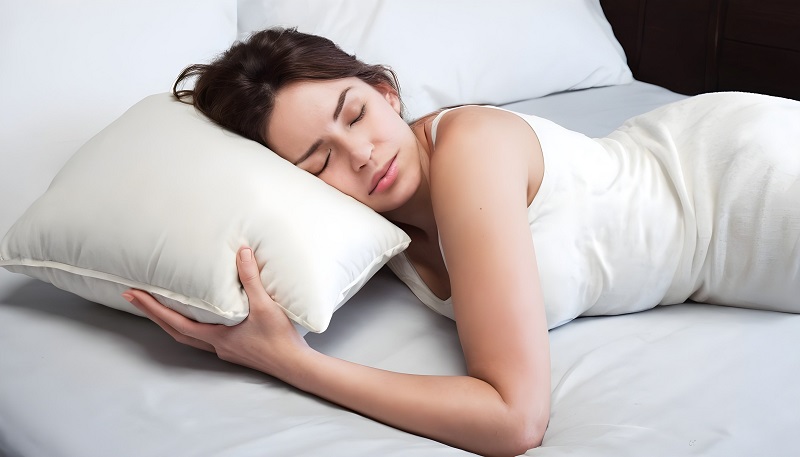
Is Memory Foam Pillow Really Better?
If you’ve ever had trouble sleeping or waking up with a sore neck, you know the importance of a good pillow. Your pillow plays a crucial role in ensuring a comfortable and restful sleep. Among the plethora of pillow options available in the market, memory foam pillows have gained significant popularity in recent years. But are they really better than traditional pillows? Let’s delve deeper into the world of memory foam pillows to find out.
Understanding Memory Foam Pillows
· What is Memory Foam?
Memory foam, also known as viscoelastic foam, is a type of polyurethane foam that responds to heat and pressure. It was initially developed by NASA in the 1960s for use in aircraft seats to improve crash protection. Over time, memory foam has found its way into various consumer products, including mattresses, mattress toppers, and pillows.
· How Memory Foam Pillows Are Made
Memory foam pillows are crafted using a blend of polyurethane foam and additional chemicals that increase viscosity and density. This unique composition allows the pillow to contour to the shape of your head and neck, providing personalized support and alignment.
Benefits of Memory Foam Pillows
· Pressure Relief
One of the key benefits of memory foam pillows is their ability to alleviate pressure points. The foam molds to the natural curvature of your body, evenly distributing weight and reducing strain on sensitive areas.
· Support for Neck and Spine
Memory foam pillows are designed to provide optimal support for the neck and spine. By conforming to your unique shape, they help maintain proper alignment throughout the night, reducing the risk of stiffness and discomfort.
· Hypoallergenic Properties
Many memory foam pillows are hypoallergenic, making them suitable for allergy sufferers. The dense structure of the foam prevents the accumulation of dust mites, pollen, and other allergens, promoting a healthier sleep environment.
· Durability
Compared to traditional pillows, memory foam pillows are known for their durability. They are resistant to sagging and deformation, retaining their shape and supportiveness for an extended period.
Drawbacks of Memory Foam Pillows
· Heat Retention
One common complaint about a memory foam pillow is their tendency to retain heat. The dense foam traps body heat, which can lead to discomfort, especially for hot sleepers.
· Off-Gassing Odor
New memory foam pillows often emit a chemical odor known as off-gassing. While this smell typically dissipates over time, it can be bothersome for some users, particularly those with sensitivities to strong odors.
· Initial Firmness
Memory foam pillows may feel excessively firm initially, especially for individuals accustomed to softer pillows. It may take some time for the foam to soften and conform to your body shape.
Also Read:- Snoring: What Causes It and Is It Bad for Your Health?
Comparison with Other Types of Pillows
When considering whether memory foam pillows are better, it’s essential to compare them with other pillow options:
- Traditional Pillows: Memory foam pillows offer more personalized support and better pressure relief compared to traditional pillows filled with cotton or polyester.
- Feather Pillows: While feather pillows are plush and soft, they lack the contouring ability of memory foam pillows, making them less supportive for some sleepers.
- Polyester Pillows: Polyester pillows are affordable and lightweight but may not provide adequate support or durability compared to memory foam pillows.
Factors to Consider Before Buying a Memory Foam Pillow
Before purchasing a memory foam pillow, consider the following factors:
- Density: Higher density foam offers firmer support, while lower density foam provides a softer feel.
- Thickness: Choose a pillow with the appropriate thickness to maintain proper alignment of the head and neck.
- Contouring Ability: Look for a pillow that molds to the shape of your body for personalized support and pressure relief.
- Price Range: Memory foam pillows come in a wide range of prices, so consider your budget when making a selection.
Common Misconceptions About Memory Foam Pillows
· All Memory Foam Pillows Are the Same
While memory foam pillows share similar properties, there are variations in density, firmness, and quality among different brands and models.
· Memory Foam Pillows Are Too Firm for Everyone
While memory foam pillows tend to be firmer than traditional pillows, many manufacturers offer different firmness options to suit individual preferences.
· Memory Foam Pillows Are Not Suitable for Hot Sleepers
While heat retention can be a concern with memory foam pillows, many manufacturers now use advanced cooling technologies to address this issue, making them suitable for hot sleepers.
Also read:- How to Relieve Insomnia with Memory Foam Pillow
Tips for Maintaining a Memory Foam Pillow
To prolong the lifespan of your best memory foam pillow, follow these maintenance tips:
- Regular Cleaning: Wash the pillowcase regularly and spot clean any stains on the pillow itself.
- Fluffing and Reshaping: Gently fluff and reshape the pillow to prevent it from becoming flattened or misshapen.
- Using Pillow Covers: Invest in a quality pillow cover to protect your memory foam pillow from spills, dust, and allergens.
Real User Experiences with Memory Foam Pillows
· Positive Reviews
Many users praise memory foam pillows for their comfort, support, and pain relief properties, citing improvements in sleep quality and overall well-being.
· Negative Reviews
Some users complain about issues such as heat retention, off-gassing odor, and initial firmness, highlighting the importance of finding the right pillow for individual needs and preferences.
Conclusion
In conclusion, memory foam pillows offer several benefits, including pressure relief, support for the neck and spine, hypoallergenic properties, and durability. However, they may not be suitable for everyone, as some users experience issues such as heat retention and off-gassing odor. When choosing a memory foam pillow, consider factors such as density, thickness, contouring ability, and price range to find the best option for your needs. Ultimately, the decision comes down to personal preference and sleep comfort.






Leave Your Comment